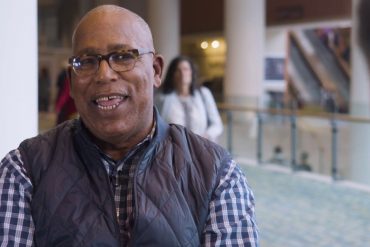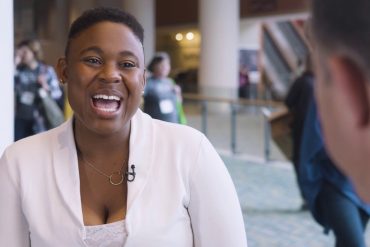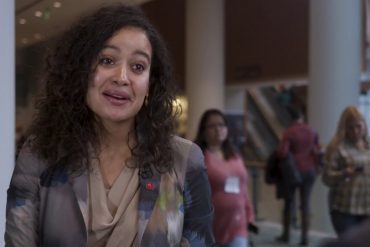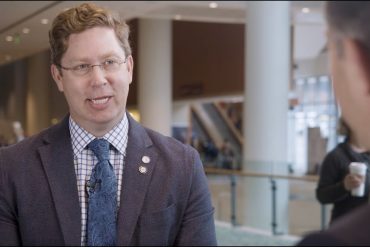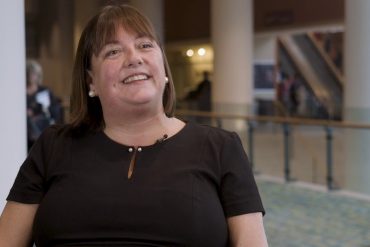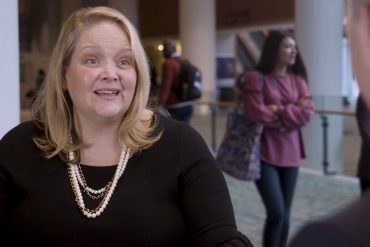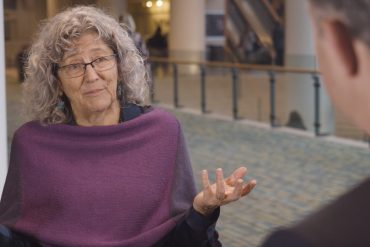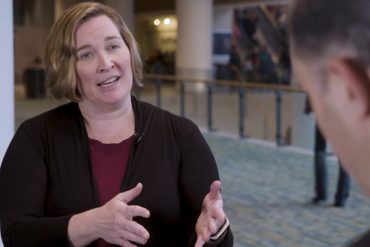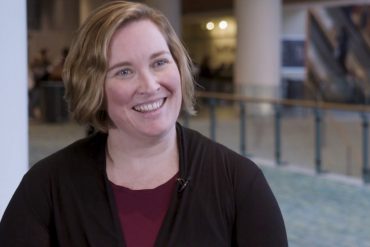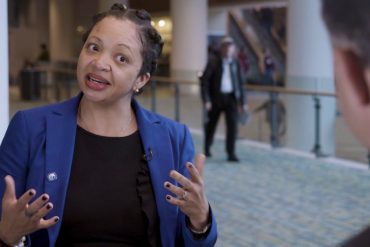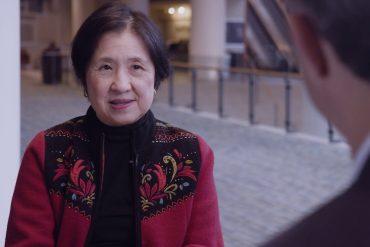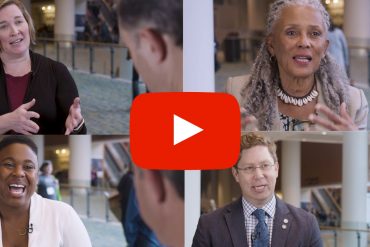How do you build leadership in early learning? According to Maurice Sykes, Executive Director of the Early Childhood Leadership Institute, it goes beyond the usual skills and benefits from an eye towards equity and social justice: “[making] sure that children, regardless of zip code or surname or gender, have access to high quality programs.”
What does it take to build 24-hour childcare? It starts with a promise. It continues with commitment. And to listen to Rosa Marie, President of Marvelous Minds Academy, there’s only one way it can end: With doors opening to serve families who need it.
As Manica F. Ramos, Senior Research Scientist at Child Trends notes, we often forget that parents are the first and primary teacher for their child – from the moment they’re born, through their school experiences, and until the end of the day. Which is why helping parents learn how to teach in every day moments is such an important piece of a child’s early learning experience.
Edward Manuszak wears many hats, but the two most important are Superintendent of Dundee (MI) Community Schools and as the AASA Early Learning Cohort Co-Chair. In both roles, he works to deliver excellent learning opportunities. So why is Manuszak among the first to say that “Early Childhood Matters Most?”
The high costs of early learning presents one of the biggest obstacles to accessing childhood education. It’s a challenge Amy O’Leary is attacking, not only as NAEYC Governing Board president, but also as director of the Early Education For All campaign of Strategies for Children, which seeks to make publicly-funded, high-quality early education available for all Massachusetts three, four and five-year-olds.
As the National Association for the Education of Young Children, two strategic policy priorities NAEYC faces are ensuring access to “high quality, developmentally appropriate early childhood education” and, relatedly, working to ensure the practitioners gain proper recognition – and support – as professionals. NAEYC CEO Rhian Allvin explains how the group will do it.
How do can the children’s individual identities evolve naturally and fully in the face of stereotypes that can often plague our communities and societies? As Julie Olsen Edwards, author ‘Anti-Bias Education for Young Children and Ourselves’ explains, some of that help can come from teachers – and how they think about their curriculum.
How do you know if you’re part of an early learning community? Cailin O’Connor, Senior Associate at the Center for the Study of Social Policy, introduces the Digital Progress Rating Tool, a new ELN offering [or new offering from ELN, CSSP and the National League of Cities] that helps stakeholders evaluate their efforts, chart progress, explore tips, and create a step-by-step action plan to create a thriving Early Learning Community.
How can communities know the progress they’re making – or areas to grow – in becoming a true center for early learning? In Part Two of our conversation, Cailin O’Connor, Senior Associate at the Center for the Study of Social Policy, explains the metrics, inputs and outputs of the Digital Progress Rating Tool and the early childhood system performance assessment toolkit.
As the importance early childhood learning becomes more widely understood, so, too, does the importance of early learning educators. As she describes, that’s just part of what inspired Clinical Associate Professor Tonia R. Durden to help design and launch the inspiring Birth to Five Program at Georgia State University.
What are the skills – the tools – children should learn to make it easier to learn to their personal ability, remember on purpose and pay attention? Deborah Leong, Co-founder & President of Tools of the Mind, explains the “Vygotskian tradition” and how young learners can extend their mental capacities the same way physical tools extend one’s physical capacities.
In 2019, we packed up the cameras and sound equipment for the Early Learning Nation Studio and went to Baltimore...


